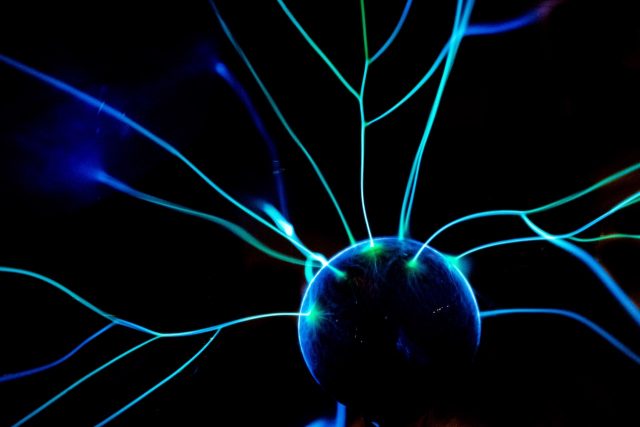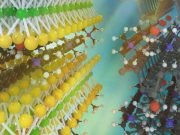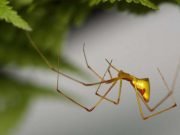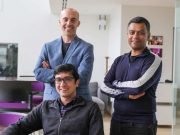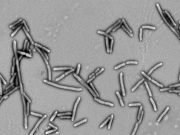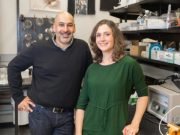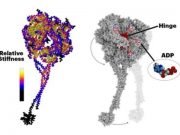Scaling silicon quantum photonic technology
An international team of quantum scientists and engineers led by the University of Bristol and involving groups from China, Denmark, Spain, Germany and Poland,...
Two better than one: Chemists advance sustainable battery technology
Utah State University chemists' efforts to develop alternative battery technology solutions are advancing and recent findings are highlighted in a renowned, international chemistry journal.
Tianbiao...
Researchers develop a new class of two-dimensional materials
A research team led by UCLA scientists and engineers has developed a method to make new kinds of artificial "superlattices"—materials comprised of alternating layers...
How brightly colored spiders evolved on Hawaii again and again… and again
About 2 to 3 million years ago, a group of spiders let out long silk threads into the wind and set sail, so to...
On Twitter, fake news travels faster than true stories
A new study by three MIT scholars has found that false news spreads more rapidly on the social network Twitter than real news does...
Fiber-fermenting bacteria improve health of type 2 diabetes patients
The fight against type 2 diabetes may soon improve thanks to a pioneering high-fiber diet study led by a Rutgers University-New Brunswick professor.
Promotion of...
A lifetime of regular exercise slows down aging, study finds
Researchers at the University of Birmingham and King's College London have found that staying active keeps the body young and healthy.
The researchers set out...
Is your stress changing my brain?
In a new study in Nature Neuroscience, Jaideep Bains, PhD, and his team at the Cumming School of Medicine's Hotchkiss Brain Institute (HBI), at the...
The ‘architecture of life’ described by computer modeling
While most of biology and medicine focus on the key roles genes and chemicals play in the formation and control of living systems, the...
Researchers sew atomic lattices seamlessly together
Joining different kinds of materials can lead to all kinds of breakthroughs. It's an essential skill that allowed humans to make everything from skyscrapers...
Global fisheries to be, on average, 20 percent less productive in 2300, UCI study...
University of California, Irvine scientists expect the world's fisheries to be, on average, 20 percent less productive in the year 2300, with those in...


